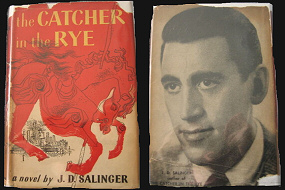February 2010 Editorial
February 1, 2010
 As participants of the Punk scene and other forms of alternative culture we are part of tradition of cultural dissent. While Punk Rock itself only came to be in the mid 1970's many of the ideals and values that are common within our subculture go back much further than the scene that we are involved in. Punk Rock is often a reality based expression of the discontent that average people face in their day to day life and part of the backlash that Punk has faced since is inception is the result of our refusal to leave the less desirable aspects of modern day life out of the vocabulary of our artistic expressions. Anger, rebellion, struggle, and discontent are part of real life so we feel that they should be a part of our art. In truth though these values of relentless realism can be found in many other forms of art, music, and literature. And like Punk Rock nearly all of these individuals and movements that have depicted an angry realism have had been confronted by the ugly face of censorship and backlash from establishments and popular culture. In the age where literature was still a popular medium of art and entertainment, often the most controversial artists were writers who rocked the boat with such realism. Some of these writers included the Beats who included Jack Kerouac and Allen Ginsberg, and also J.D. Salinger who did not subscribe to any artistic movement but managed to change the world of literature single handed.
As participants of the Punk scene and other forms of alternative culture we are part of tradition of cultural dissent. While Punk Rock itself only came to be in the mid 1970's many of the ideals and values that are common within our subculture go back much further than the scene that we are involved in. Punk Rock is often a reality based expression of the discontent that average people face in their day to day life and part of the backlash that Punk has faced since is inception is the result of our refusal to leave the less desirable aspects of modern day life out of the vocabulary of our artistic expressions. Anger, rebellion, struggle, and discontent are part of real life so we feel that they should be a part of our art. In truth though these values of relentless realism can be found in many other forms of art, music, and literature. And like Punk Rock nearly all of these individuals and movements that have depicted an angry realism have had been confronted by the ugly face of censorship and backlash from establishments and popular culture. In the age where literature was still a popular medium of art and entertainment, often the most controversial artists were writers who rocked the boat with such realism. Some of these writers included the Beats who included Jack Kerouac and Allen Ginsberg, and also J.D. Salinger who did not subscribe to any artistic movement but managed to change the world of literature single handed.
This week author, J.D. Salinger passed away after spending many years avoiding the public eye. While Salinger's personal life was documented as being conflicted at best, few could deny the impact that he had on American culture and literary culture as a whole. He was best known as the author of The Catcher In the Rye, a semi autobiographical novel that followed the exploits of a young and angry narrator named Holden Caulfield. Caulfield, like many of us, had a strong distaste for the shallow nature of most of the people that he interacted with. Despite his cynicism and jaded world view at a young age, at the core Cualfield proved to be a caring person who wanted nothing more than to improve the world in small and very personal way. This can best be seen in the passage that the book gets its namesake from:
"Anyway, I keep picturing all these little kids playing some game in this big field of rye and all. Thousands of little kids, and nobody's around - nobody big, I mean - except me. And I'm standing on the edge of some crazy cliff. What I have to do, I have to catch everybody if they start to go over the cliff - I mean if they're running and they don't look where they're going I have to come out from somewhere and catch them. That's all I do all day. I'd just be the catcher in the rye and all. I know it's crazy, but that's the only thing I'd really like to be."
The first time that I read Catcher it felt as if I was reading my own personal journals. Salinger in his own unique and brilliant way captured and exposed the thought process of young men in their late teenage years. Everything from the unexplained anger that goes on in the mind of young men to the tenderness, insecurities and vulnerability of the male spirit is there in a bare and multi- dimensioned view. Caulfield constantly seeks to find a balance in the contradiction of man, which is that we often simultaneously seek the freedom of isolation and the warmth of human contact.
Because of Salinger's gritty and realistic view of the condition of young men, Catcher was constantly threatened by those who sought to censor the novel. Like any truly important piece of art the book threatened people's perceptions and made them uncomfortable. Parents, religious leaders, and politicians made sure that Catcher was banned in schools and libraries all over the country for not only its language but for the content which accurately showed a young man who had contempt for authority and an interest in sex.
Like anything else that is important enough to get the attention of censors, The Catcher In The Rye eventually had a big enough impact so that it transcended the feeble world views of those who sought to ban it. Today it is often required reading in high schools but it still gets a bad rap from some ultra establishment types. In the sense that it upset people for its realism, Catcher fits in perfectly with our philosophies here at Big Wheel. We are constantly seeking art that makes people think and sheds light on ideas that are easily overlook by the status quota. We hope that when the next J.D. Salinger comes around or the next Bob Dylan, Johnny Rotten or Allen Ginsberg comes around that we will be amongst the first people to give them a helping hand when they inevitably are met with reactionary disdain from the establishment.
In another passage from the book, Caulfield addresses being expelled from school, stating:
"What I was really hanging around for, I was trying to feel some kind of a good-by. I mean I've left schools and places I didn't even know I was leaving them. I hate that. I don't care if it's a sad good-by or a bad good-by, but when I leave a place I like to know I'm leaving it. If you don't, you feel even worse."
So with that we say farewell to J.D. Salinger and hope that when he left this world that he felt the good bye.
-Ditch-
Asst. Editor









